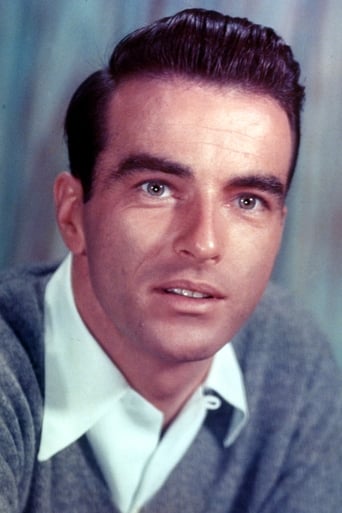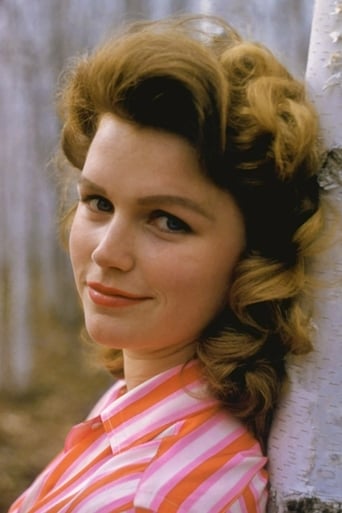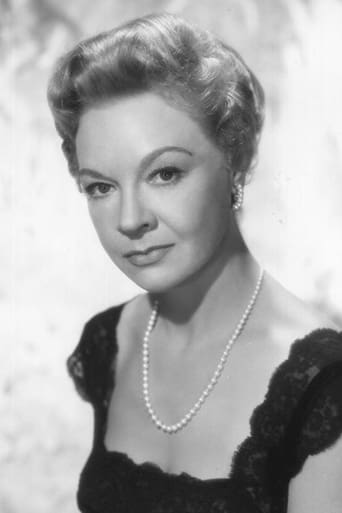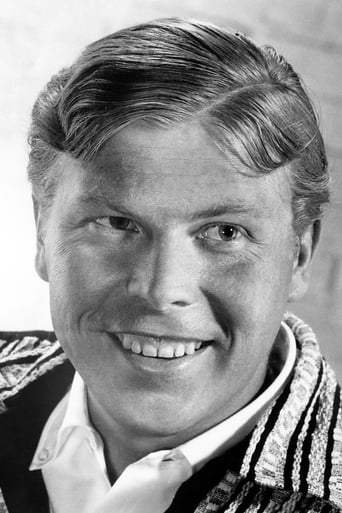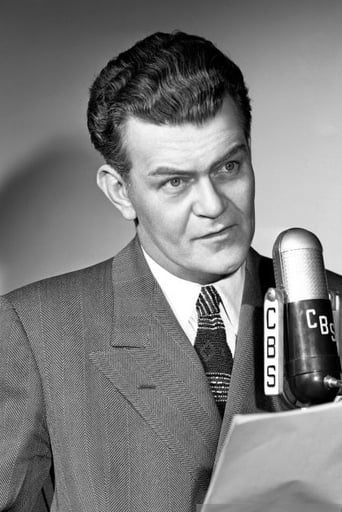marcslope
Lee Remick's own favorite among her movies, and fine late Elia Kazan, this historic romance of the TVA and progress vs. tradition is beautifully crafted, gorgeous to look at, exquisitely acted, and quite frightening in its depiction of potential mob violence. Cleverly adapted from two books by Paul Osborn, it takes its time spinning out a gripping tale of a government agent (a restrained Montgomery Clift, his private life a wreck, but none of it shows on screen) trying to evict a stubborn, proud old woman (Jo Van Fleet, magnificent; Shirley Jones won over this? Really?) from her island so it can be flooded and power brought to all those poor Tennesseeans. He enlists the aid of her widowed-mom granddaughter, Remick, and the relationship between her and Clift is wonderfully ambiguous and rich. It's intelligent, moving, and convincing, and nobody went to see it in 1960. Very worth seeking out.
tieman64
In response to the Great Depression, the United States initiated the "New Deal", a series of domestic projects (and reforms) designed to assist and placate the poor. One such project was the Tennessee Valley Authority. A federally owned corporation, the TVA attempted to provide flood relief, economic development, jobs and electricity for the Depression afflicted Tennessee Valley.Elia Kazan's "Wild River" stars Montgomery Clift as Chuck Glover, a TVA planning commissioner. Chuck's responsible for relocating towns and villages surrounding a recently erected hydroelectric dam. Standing in the way of this "progress" is Ella Garth (Jo Van Fleet), an elderly matriarch who owns Garth Island. For the hydroelectric project to be completed, Chuck must remove Garth from the island. Taking Garth's side are her family members and several black workers.An odd and at times very original film, "Wild River" is preoccupied with the twin sides of progress. Chuck's hydroelectric dam brings "development" for many in rural Tennessee, but also uproots communities and removes thousands from their land. More than this, this "progress" results in many self-sufficient, agrarian landowners (and workers) being absorbed into a new mode of social organisation. Those displaced from their land may be compensated with houses, electricity and property, but also now find themselves dependent upon employers, the state and those with capital.But whilst Kazan, a jaded communist, shows state and private employers (often operating in cahoots) robbing the individual of a certain "self sufficiency", he is careful to also show the opposite. Old Ella Garth is your typical rugged individualist. A "self made" woman, she's a caricature of those riled up Southern conservatives who're always moaning about the "gubbament" imposing its will upon others "for their own good". But Kazan makes it clear that Garth herself relies upon a small army of black workers, many of whom live in terrible conditions. It is not difficult to see why these blacks would run to Chuck and so reject the seemingly "benign" Ella Garth.Indeed, in the late 1920s and early 1930s, a series of violent floods changed the voting patterns of African Americans, leading directly to the Democratic Party's rise to power. During these floods, places like Mississippi and Tennessee saw the loss of arable land. Along the Mississippi River alone, some 127,000 miles of land was swamped, and more than one million homes were destroyed; 1 percent of the country's population at the time. Most of these were African Americans, hundreds of thousands of whom fled to refugee camps. In these camps, policed by the National Guard, no one could enter or leave without a pass and thousands were forced to work for no wages and toil at gunpoint. Torn from their land by the floods, these blacks slowly found themselves becoming part of a kind of neo slave caste. Before and after these floods, things for them were no better, many caught in debt servitude, sharecropping, Jim Crow segregation, hounded by lynch laws and Ku Klux Klan riders and so forth. It's thus no surprise that many African Americans saw New Dealers as offering a "way out".Kazan's "Wild River" doesn't go into all of this. What Kazan does well, though, is show how the New Deal merely led to new types of problems. Once they leave her, Ella Garth's black and white workers aren't emancipated, but enfolded into a new model of exploitation. Their wages pushed down, beholden to others and stripped of their autonomy, they become a new type of work horse."Wild River" sports a subplot involving Chuck's romance with Carol (Lee Remick), a relative of Ella Garth. But does Chuck honestly love Carol? Is his relationship with her a means of gaining trust with the family and so undermining Ella? Ironically, Chuck's abuse of power and authority – he attempts to have Ella judged mentally incompetent – echoes the tactics used by Carol. When Chuck and Carol's romance comes at an impasse, for example, she essentially blackmails Chuck into marriage. Chuck agrees to this marriage, but there is a sense that, though the duo love each another, their romance is founded upon subtle games of manipulation."Wild River" is one of Kazan's most exquisitely photographed films. It unfolds at a leisurely pace, capturing the tempo of a Southern life which explodes only occasionally into bouts of violence or racial hysteria. A wooden raft becomes the film's chief motif, a raggedy structure which bridges the old world and the new. Chuck spends most of the film floating back and forth on this raft, attempting to get others to join him on his journey into the "future". It's a future which is sceptically portrayed, Kazan unsure of "progress", how progress is "sold", who it actually benefits and what its hidden ramifications are. For all its flaws, the films is unique in the way it captures a shift in the very way America was socially organised.7.5/10 – Dull and dated in many places, and unable to fully exploit an interesting premise, "Wild River" is nevertheless one of the most interesting melodramas of the late 1950s. See Ken Loach's "Bread and Roses" and Mark Rydell's "The River".
bkoganbing
According to Robert LaGuardia's biography of Montgomery Clift, director Elia Kazan got the germ of the idea for Wild River while working temporarily for the Department of Agriculture during the New Deal years. He saw how the creation of these government agencies changed American life and waited for about 20 years before finally getting to do his New Deal film.The agency he chose was one that has lasted and changed the lives of people in about seven states that the Tennessee River and tributaries flow through. The Tennessee Valley Authority was one of the great achievements of the Roosevelt administration bringing cheap hydroelectric power to a region that private companies would not service because it wasn't profitable. The dams on the tributary rivers and on the Tennessee itself became part of a whole system that changed everyone's lives in the region for the better.Well, almost everyone and that's what the story of Wild River is all about. A family named Garth headed by matriarch Jo Van Fleet lives and farms on an island in the river which will be flooded over when the dams are finished. TVA administrator Monty Clift is sent to deal with the situation, but also gets personally involved with Van Fleet's grand daughter Lee Remick.The film really belongs to Van Fleet. You'll not forget her portrayal of an aged and stern pioneer farm woman who is just fighting for the place that's been home all her life. In my opinion Kazan got just as good a performance out of Jo Van Fleet maybe even better than the one she got an Oscar for in East Of Eden. In fact the whole film is sadly overlooked when judging Elia Kazan's work. I think it's a masterpiece.As for Clift, Kazan originally wanted Marlon Brando, but when Brando proved unavailable he hired Clift who was becoming more available simply because of his unreliability due to his increased drinking. While he didn't stay clean and sober for the shoot, he respected Kazan and the film enough to be letter perfect on his days before the camera. Monty was on a sad downward spiral in his life though you would not know it from this film, the one preceding it Suddenly Last Summer and the one following it, Judgment At Nuremberg for which he got an Oscar nomination. He was one of the greatest screen actors there ever was, most of his work is classic. Ironically Marlon Brando would be hired when Clift died in 1966 for the starring role in Reflections Of A Golden Eye.Kazan has a real feel for the times in Wild River. It's not only good entertainment, but ought to be assigned viewing by political science professors who want to demonstrate the impact of the New Deal in American life during that period.And this review is dedicated to a man who worked for over 15 years to get the Tennessee Valley Authority through Congress. Senator George W. Norris was one of the giants of the US Senate, his is a career for the most part that ought to be studied and emulated. We could use a lot more like him today in government.
JasparLamarCrabb
This nearly forgotten film from director Elia Kazan has a plot line closer to a Stanley Kramer film, albeit without the bombast. A government man, played by Montgomery Clift in his last great performance, tries to persuade the matriarch of a backwoods family to sell her land so a river can be routed through it. Clift's performance is matched by the always terrific Jo Van Fleet (only 40ish, but playing 80ish --- Kazan clearly indulges her). Van Fleet's performance is electrifying. Although there is a subplot involving Clift and Lee Remick, it takes a back seat to the Clift-Van Fleet showdown. Remick is terrific and Jay C. Flippin is a plus as one of Van Fleet's more intelligent "boys." A couple of drawbacks: the movie's widescreen and color photography soften its overall impact. There's no real sense that this is the 1930s. Nonetheless, WILD RIVER remains Kazan's nearly forgotten, near masterpiece.

